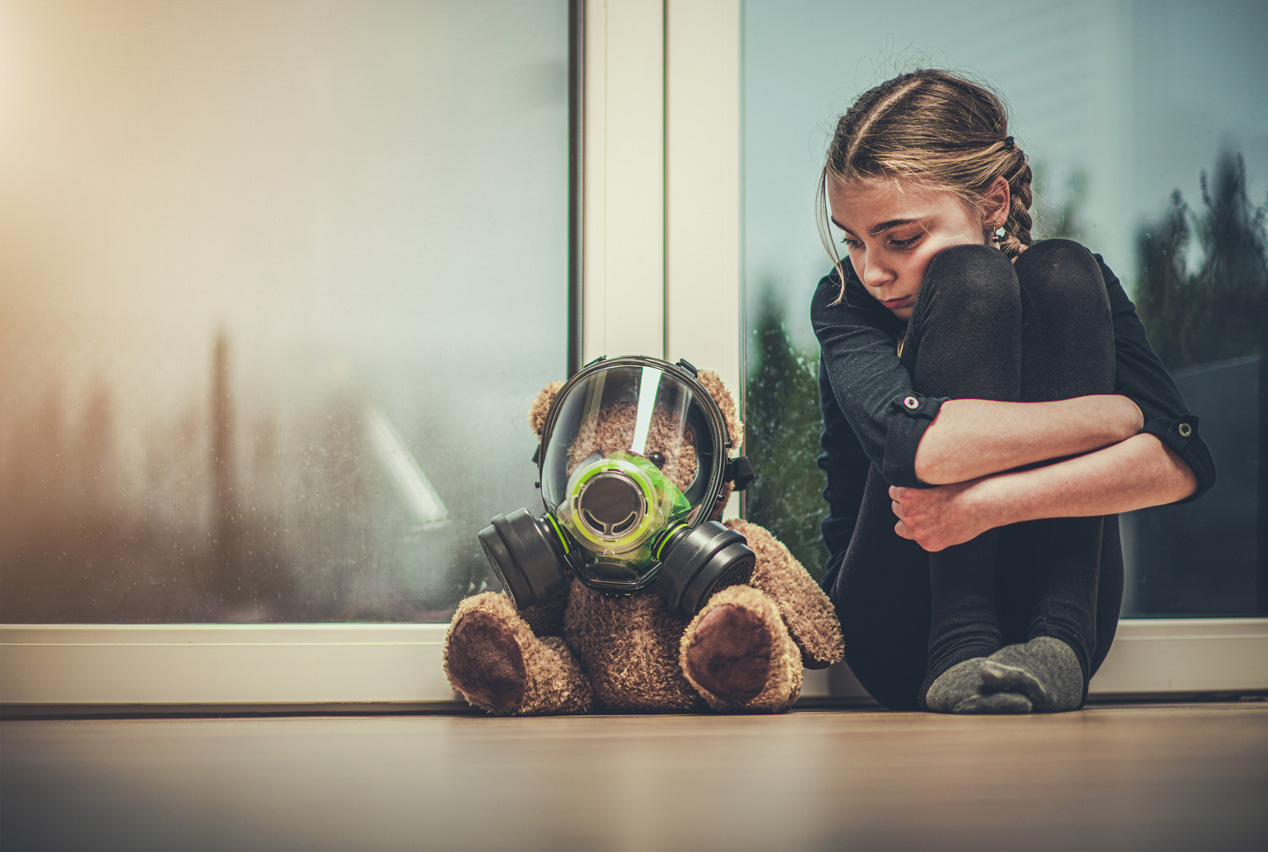Talking to Your Kids About COVID-19

Kids know about the coronavirus, or COVID-19, outbreak. It is on the news, everyone is talking about it, and your child’s teacher or school may have given them instruction on personal hygiene like washing hands, etc. But hearing about it from all those sources isn’t nearly as important as hearing it from you.
But, how do you approach that conversation with your child? How do you strike a balance between informing them but not overwhelming them? Alan Delamater, Ph.D., a pediatric psychology expert with the University of Miami Health System, says that the first thing parents should do is explore their own feelings and make sure they have accurate information.
Children take cues from their parents, he says, so if you are anxious and uncertain, they will be, too. “Uncertainty is related to the lack of information, and sometimes it’s related to the wrong kinds of information,” says Dr. Delamater. “So, it’s really incumbent on parents to get accurate information from authoritative sources, like the CDC or local health agencies.”
The next thing to consider is your child’s age. Dr. Delamater breaks it down by age group or developmental age group.
Preschool (2-5 years old)
Keep it simple. Rather than a lot of information that they likely will not understand, Dr. Delamater says that children in this age group need structure and for their parents to remain calm. “Even at age two and three, they’re going to pick up their cues from their parent; so, I want to put pressure on parents to behave well,” he says. “They need to be good role models for their child about how to do deal with curveballs that get thrown at us, and certainly, this is a major curveball.”
Routines and reassurance will also help you and your child to cope at this age and older kids, too. Dr. Delamater says to make sure that your children know that you have a plan and that you are there to keep them safe.
Elementary school (6 – 10 years old)
Once children get into elementary school, it gets harder to protect them from things they hear. “We first need to find out what they know,” says Dr. Delamater. “I like to use open-ended questions with kids, such as, ‘What did you hear about coronavirus at school today?'” This allows parents to correct any factually incorrect information they may have heard.
Also, parents can use these conversations to reinforce good hygiene like handwashing, coughing into your elbow, and not touching your face. “Psychologically, this is a good message to convey; that there are some things that we can do and that we are not entirely powerless,” he says. “It’s important to have some control, especially in uncertain times.”
Middle to High School (11 – 17 years old)
Older kids are going to have a lot more exposure to all kinds of information from social media and interaction with their peers, says Dr. Delamater. He suggests talking to them by asking them what their thoughts are or what specific concerns they may have. “When they begin to talk with you about it, it gives you the opportunity to reflect not only on what they’re saying but also to determine whether or not they’ve got accurate information,” he says. “And, if they do have accurate information, then you can reinforce that too.”
Dr. Delamater also suggests that parents remind children that coronavirus is not associated with a particular ethnic group, which is something they may be hearing at school.
With older kids, and younger as well, try to keep an eye on what they are exposed to via social media and limit exposure to the news. “It’s important to be informed, but not to obsess,” says Dr. Delamater. This is where parents need to model good behavior by not keeping the TV on all day long.
Anxiety in children
Some kids diagnosed with an anxiety disorder or who are prone to anxiety may be more nervous about coronavirus than other children. When talking to them, Dr. Delamater suggests not being vague.
“A term that we use in clinical psychology is stress inoculation, inoculation being the operative word,” he says. “A stress inoculation approach is to consider the potential and to be able to take active measures to cope with that.” He says to tell them about coronavirus and then lay out specific steps to take to lower the probability of getting sick.
“What a kid wants is their parent to say, ‘Hey, I have, we have a plan here to keep you safe,’” says Dr. Delamater. “That’s the sort of thing that reassures children and helps them to cope better.”
Natasha Bright is a contributing writer for UMiami Health News.
Tags: Alan Delamater, COVID-19, pediatric mental health, talking to kids
